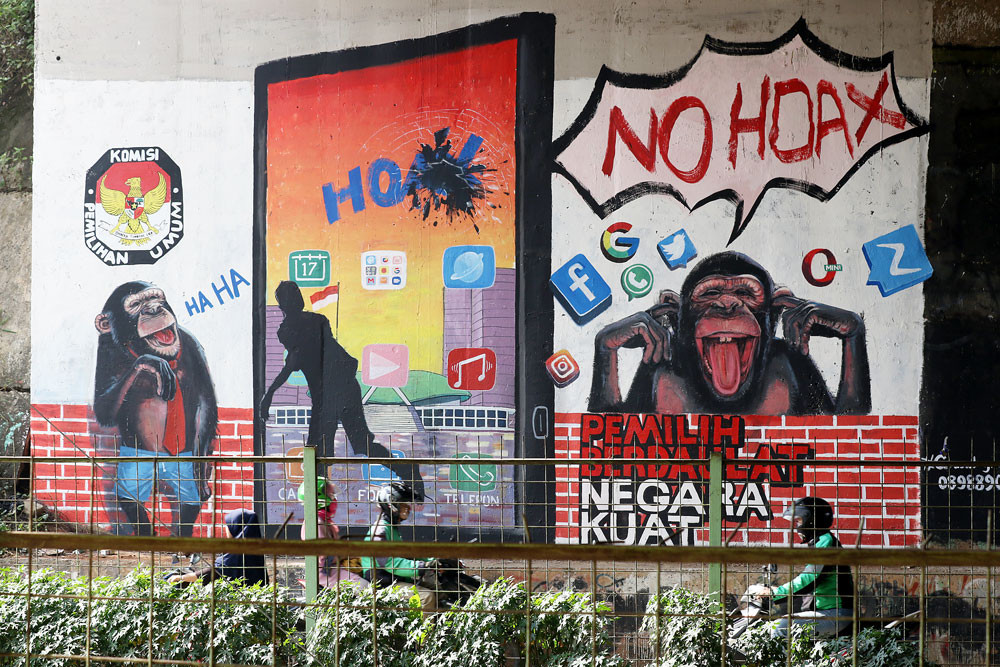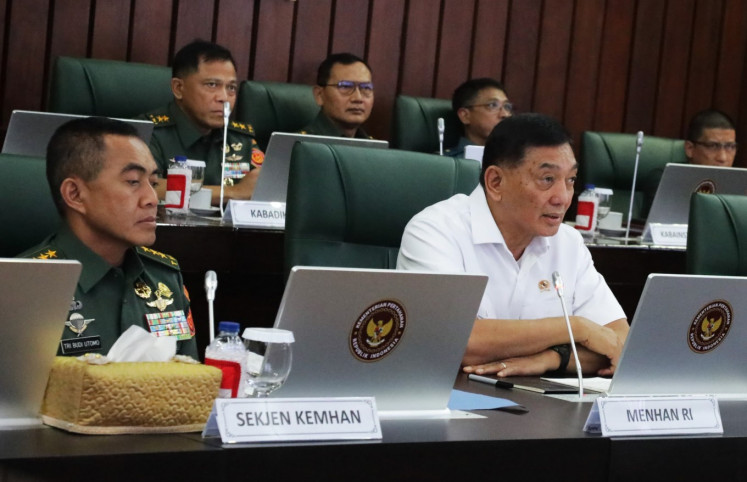Popular Reads
Top Results
Can't find what you're looking for?
View all search resultsPopular Reads
Top Results
Can't find what you're looking for?
View all search resultsElection integrity in spotlight as vote draws near
To the surprise of many, several incidents ahead of the April 17 simultaneous legislative and presidential elections have suggested that attempts to manipulate the results could be more than just hearsay.
Change text size
Gift Premium Articles
to Anyone
R
egardless of who wins the upcoming legislative and presidential elections, it is extremely important that the process is clear, so as to provide legal justification for the results, and so that the public can be sure the polls were credibly organized, without any manipulation of the results. Failure to demonstrate the credibility of the elections will essentially make the process undemocratic, with the results open to being challenged in court.
To the surprise of many, several incidents ahead of the April 17 simultaneous legislative and presidential elections have suggested that attempts to manipulate the results could be more than just hearsay. Unlike cases in the past, which lacked the evidence needed to be brought to court, this time, the accusers claim to have solid evidence and testimony from witnesses.
One case pertains to allegations made by Adj. Comr. Sulman Aziz, a former Pasirwangi District Police chief in Garut, West Java. Sulman said on March 31 that the top brass of the local police had ordered him and fellow district police chiefs in Garut to mobilize people in the regency to vote for the incumbent President Joko “Jokowi” Widodo and his running mate Ma’ruf Amin.
“I was summoned several times by Garut Police chief [Adj. Sr. Comr. Budi Satria Wiguna] to make a list of people’s opinions on each presidential candidate pair. We were instructed to mobilize the people” to vote for candidate pair Number 01, Sulman told the media at the Lokataru Legal and Human Rights Foundation in East Jakarta, referring to the Jokowi-Ma’ruf pair. He was accompanied by renowned activist and Lokataru director Haris Azhar.
“We, district police chiefs, were threatened that we would be transferred to other posts if candidate pair Number 01 lost in Garut,” Sulman said.
A day later, however, Sulman retracted his statement, and said his accusations were motivated by a personal conflict, which had peaked with his reassignment to another post in the West Java police headquarters.
Separately, Haris told The Jakarta Post that he had evidence of the alleged instruction to mobilize support for the candidate pair.
Another case is the recent finding by the Corruption Eradication Commission (KPK) of thousands of envelopes filled with cash confiscated from Golkar Party lawmaker Bowo Sidik Pangarso during an arrest related to an alleged corruption case. Bowo, a member of House of Representatives’ Commission VII overseeing energy and mineral resources, allegedly accepted Rp 8 billion (US$564,632) from a manager of private transportation company PT Humpuss Transportasi Kimia, which provides sea transportation for PT Pupuk Indonesia Logistik, a subsidiary of holding company PT Pupuk Indonesia, the country’s largest fertilizer company.
The KPK suspected that Bowo intended to use the bribe to finance his campaign, as the money was reportedly going to be used to buy votes a few hours before the polls opened on April 17.
Sulman and Bowo’s cases have led to widespread speculation that attempts to manipulate the elections could be more widespread, and potentially involve other police officers.
National Police chief Gen. Tito Karnavian is yet to issue a statement regarding Sulman’s case, although many have said it was necessary to counter allegations that the police were mobilizing people to vote for the incumbent.
President Jokowi has on several occasions asked the police and the Indonesian Military (TNI) to maintain impartiality in the elections. Without credible investigation, however, alleged violations of the police’s neutrality as in the Garut case will remain unsolved and recur in the future.
TNI chief, Air Chief Marshal Hadi Tjahjanto has made declarations about the state security apparatuses’ commitment to neutrality in the April 17 elections. The most recent came on Tuesday during a joint exercise among elite units of the Army, the Air Force and the Navy in preparation for the simultaneous elections.
Speculation has also been rife that vote buying could occur throughout the country, involving candidates for the legislative councils at the city and/or regency, provincial and national levels. Voters have been known to accept bribes, though they may still vote for a different candidate.
Apart from allegations about the police’s partiality and suspected vote-buying efforts, experts and the public are also concerned about potential irregularities, particular in the vote tabulation process. This is the vote counting process used across all of the country’s 809,500 polling stations, in which voting data is transferred from the polling stations to the regional offices of the General Elections Commission (KPU) for the vote recapitulation. Such a concern is valid given the reports of irregularities in the 2014 presidential election.
However, public participation in the poll monitoring, as initiated by a KawalPemilu volunteer group, can minimize vote rigging during the recapitulation. KawalPemilu volunteers will gather photos of actual vote tally forms of polling stations across the country.
To win a seat in a legislative council or to secure victory in the race for the country’s highest office is an excellent achievement. But to win a legislative seat or be elected the president in a fair, righteous manner is par excellence!










